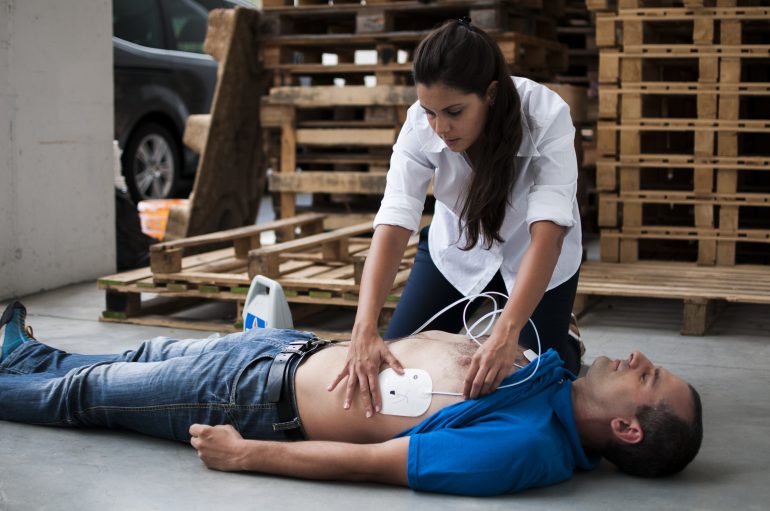Dutch volunteer first responders lent assistance to heart attack victims in 2022 more often than in prior years. Last year, volunteers participating in HartslagNu, the system that coordinates responses to suspected heart attacks nationwide, were available to provide emergency resuscitation until ambulances arrived in response to eight out of ten requests for assistance. This is a rise from 2019, when they provided help in response to about six out of ten calls regarding heart attacks.
The Netherlands has a nationwide system, HartslagNu, that coordinates responses to 112 calls involving potential heart attacks. When a heart attack-related call comes in at 112, the national emergency number, requests for assistance go out to trained volunteers located close to the victim, who can respond and provide first aid until an ambulance arrives. Because the system reaches out to volunteers within two kilometers of the person who needs resuscitation, they can often make it to the person in need and begin providing help before ambulances are able to reach the victim.
Speedy medical attention and reanimation generally lead to better outcomes when it comes to cardiac events. Volunteers who are within 150 meters of the person in distress are sent to provide direct assistance; others are directed to pick up and bring nearby automatic external defibrillators (AEDs) to where they’re needed.
AEDs deliver jolts of electricity that can often restore proper heart function in the event of cardiac arrest or arrhythmia, which happen when electrical signals in the heart become disordered. AEDs are lightweight, easy to use and portable. They make potentially life-saving help quickly available outside of clinical settings such as hospitals and doctors’ offices. Although they’re relatively simple to operate, AEDs are generally most effective when used by those who’ve received training in their basic operation as well as cardiopulmonary resuscitation (CPR).
Private owners of AEDs can register their devices with HartslagNu to make them available for volunteer first responders to use in emergencies until ambulances can arrive. There are around 25,840 AEDs registered nationwide, and HartslagNu has approximately 235,000 volunteers throughout the Netherlands. Dutch emergency services received about 13,532 calls involving suspected heart attacks in 2022. Around 3,000 volunteer first responders are called out every day.
Volunteers are often easier to come by in rural areas than in large cities. They tend to respond less frequently in places such as Amsterdam, Rotterdam and The Hague. Volunteers were sent out in response to suspected heart attack calls only 64 percent of the time in Amsterdam. In provinces such as Limburg and Gelderland, volunteers were able to lend a hand in response to more than 90 percent of requests to provide help. To obtain sufficient volunteer responses, calls go out to 100 volunteers for each call in urban areas and 60 when dealing with emergencies in rural locations.
More volunteers are needed to ensure smooth and efficient national coverage under the system, as there are areas with relatively few volunteers close enough to an AED to respond quickly to emergency situations. About 81 percent of the AEDs in the Netherlands are within quick retrieval distance of at least 60 volunteers trained in their use. However, almost none in Friesland have 60 registered volunteers close enough to provide fast assistance, and there are some municipalities, including the Wadden island Terschelling and Sluis in Zeeland, facing similar shortages.
Anyone over the age of 18 who has completed an accredited resuscitation-centered first aid course can register with HartslagNu as available to provide assistance in emergencies. Many organizations around the Netherlands offer accredited CPR and first aid courses that teach the required skills. Hartstichting, the national charity for heart disease, has on its website has a handy list of classes for those who are interested in getting started or who need to update their certification. Yearly refresher courses are recommended to ensure those who have participated in classes in the past stay up to date when it comes to life-saving skills.
Written by Lorre Luther
